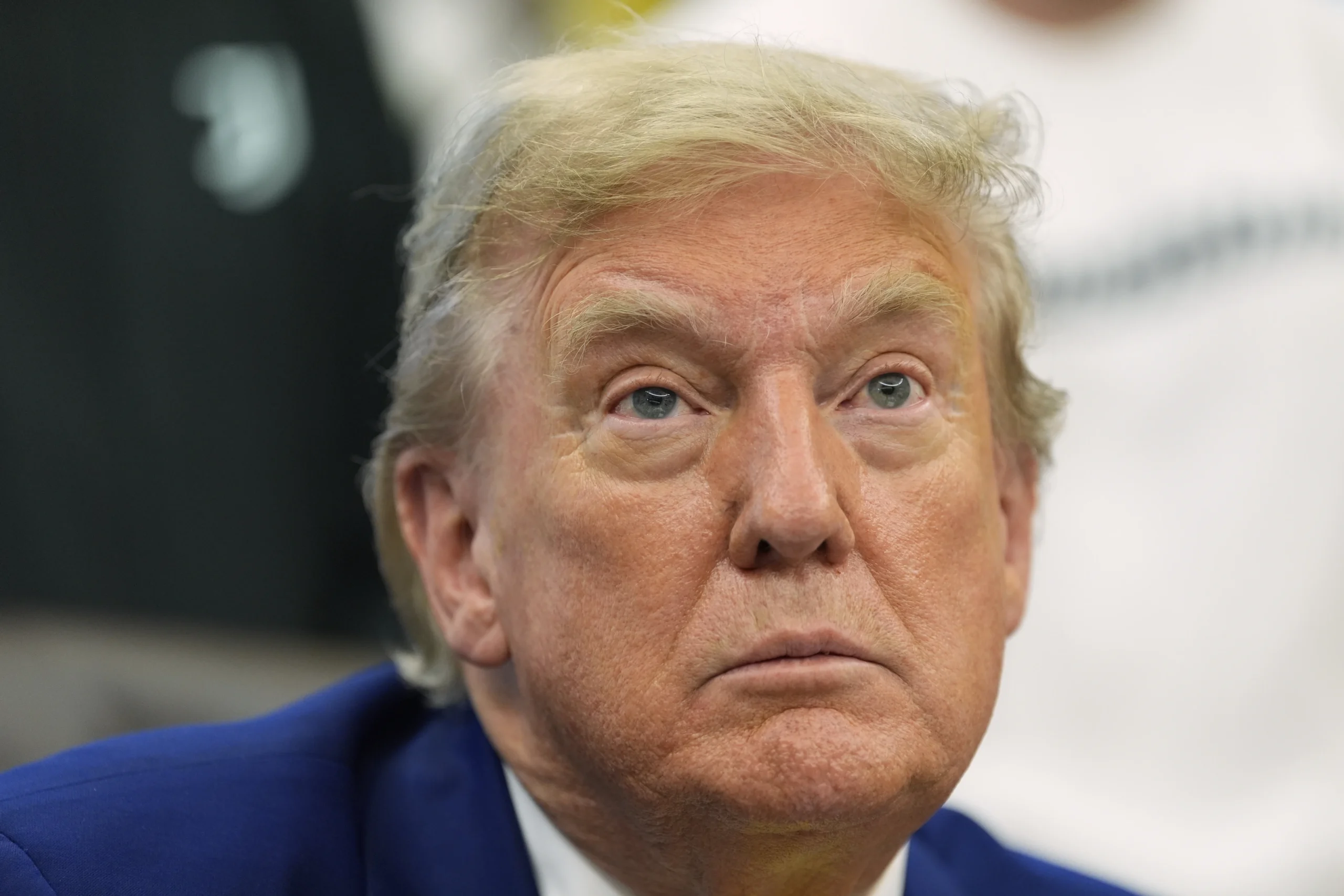

President Donald Trump is stoking the intrigue surrounding his decision regarding whether the United States will support Israel‘s military campaign against Iran’s nuclear program.
After departing this week’s Group of Seven leaders summit in Canada early amid speculation that U.S. engagement in the Middle East was imminent, Trump announced through White House press secretary Karoline Leavitt on Thursday that he would make a final decision in “two weeks.”
“I quote, ‘Based on the fact that there is a substantial chance of negotiation that may or may not take place with Iran in the near future, I will make my decision whether or not to go within the next two weeks.’ That’s a quote directly from the President today,” Leavitt told reporters.
That statement tempers expectations of imminent U.S. involvement in the war, with Trump’s previous deadlines of “two weeks” being extended indefinitely.
For Democratic strategist and Obama State Department alumnus Tom Cochran, Trump’s abrupt departure from this week’s G7 underscored his perception of “direct crisis management as more valuable than multilateral consensus-building.”
“I would hope that it is a deliberative process to make a strategically informed decision rather than reacting to circumstances,” Cochran told the Washington Examiner of Trump’s decision-making process.
For Republican strategist John Feehery, Trump’s preference is for a negotiated deal between the U.S. and Iran.
“[That] would put him in line for [a] Nobel Peace Prize,” Feehery told the Washington Examiner.
Fellow Republican strategist Cesar Conda, Secretary of State Marco Rubio’s former Senate chief of staff, agreed that “Trump knows Iran is on the ropes and there isn’t any rush to take action on the Fordow nuclear site.”
“He’s leaving the door open for a diplomatic solution,” Conda told the Washington Examiner. “Either way, I believe the president will end this conflict and will not allow Iran to have a nuclear weapon.”
Iran’s Fordow Fuel Enrichment Plant is crucial to Trump’s decision-making, however public and protracted. It is an underground uranium enrichment facility at a former Islamic Revolutionary Guard Corps base, one of Iran’s two such facilities, which can only be destroyed by a 30,000-pound U.S. Guided Bomb Unit-57 series Massive Ordnance Penetrator, known as a “bunker buster.”
There were reports on Tuesday that Trump had approved a plan to attack Iran, but had withheld the final order to provide Tehran with more time to negotiate a peace deal, which would include the end of its nuclear program, even expressing his openness to hosting negotiations at the White House.
That desire for a negotiated peace deal became more evident on Thursday with his statement, though Leavitt reiterated the danger Iran posed.
“Let’s be very clear — Iran has all that it needs to achieve a nuclear weapon,” she said. “All they need is a decision from the supreme leader to do that. And it would take a couple of weeks to complete the production of that weapon, which would of course pose an existential threat, not just to Israel but to the United States and to the entire world.”
In her briefing, Leavitt also emphasized that Trump’s decision to provide himself a two-week deadline was not because of pressure from the likes of media personality Tucker Carlson and former White House chief political strategist Steve Bannon, as that appears to be dissipating. She sidestepped questions about whether the president would seek congressional approval to declare war as well.
“He is the peace-through-strength president, and so if there’s a chance for diplomacy, the president’s always going to grab it — but he’s not afraid to use strength as well,” the press secretary said. “The president hears all voices across the country, and he makes decisions based on his instincts.”
Of Trump’s critics, she added: “Trust in President Trump. President Trump has incredible instincts, and President Trump kept America and the world safe in his first term as president in implementing a peace-through-strength foreign policy agenda.”
One senior White House official dismissed the apparent schism between the competing schools of foreign policy inside his own political coalition, telling the Washington Examiner that Trump is something of a “Rorschach test” for his supporters, “where people see what they want to see” in his policies while downplaying other portions.
“The nature of Trump is just, we have a broad coalition and we’re going to piss people off and we’re going to please other people. Like that happens week in and week out. He doesn’t give a f***,” the aide said. “He’s not an ideologue. He’s ever been an ideologue, but he has been consistent — he has always been willing to use the military. I think people put on to him this idea that he’s never down to use the military because he’s criticized foreign entanglements, but there’s a gray area. It’s not just, like, no war or war.”
Trump has been open about his instincts since his return from the G7, telling reporters in the Oval Office on Wednesday he would “make the final decision one second before it’s due, because things change, especially with war.”
Hours before, as he inspected his new flag pole on the South Lawn, Trump said he “may do it” or he “may not do it,” appearing to relish the attention while dinging reporters for trying to predict his war intentions.
Aside from the bunker bomb, the other consideration complicating Trump’s decision is, if the U.S. were to strike Iran, what would come next for Tehran — and him. The president indicated earlier this week that regime change was a possibility.
Trump has defended his consideration of military action against Iran, despite repeatedly campaigning on the promise not to start any new wars.
“My supporters are for me, my supporters are America first, and for make America great again,” he said. “My supporters don’t want to see Iran have a nuclear weapon.”
The president continued: “I don’t want to get involved either, but I’ve been saying for 20 years — maybe longer — that Iran cannot have a nuclear weapon. … They’d use it. I believe they’d use it.”
Meanwhile, Iran’s foreign minister is anticipated to meet with British, French, and German counterparts on Friday in Geneva, Switzerland. The U.S. is not directly taking part in those negotiations.
TRUMP TO GIVE HIMSELF TWO WEEKS TO DECIDE WHETHER TO STRIKE IRAN
“Well, certainly, the entire world is on the president’s side when it comes to the fact that Iran cannot obtain a nuclear weapon,” Leavitt said on Thursday. “This is something that pretty much all of humanity, except for the Iranian terrorist regime themselves, agree upon. And so the president expects that Europe will deliver that message directly to the Iranians.”
Simultaneously, the State Department is reportedly making contingencies to help U.S. citizens evacuate from Israel after it started facilitating the departure of nonessential diplomats and their families from the U.S. Embassy in Jerusalem.
Christian Datoc contributed to this report.



